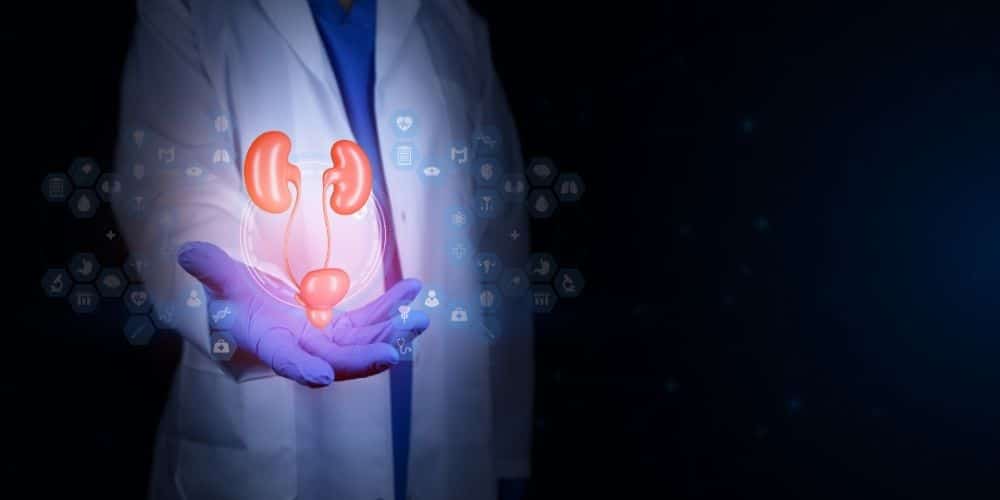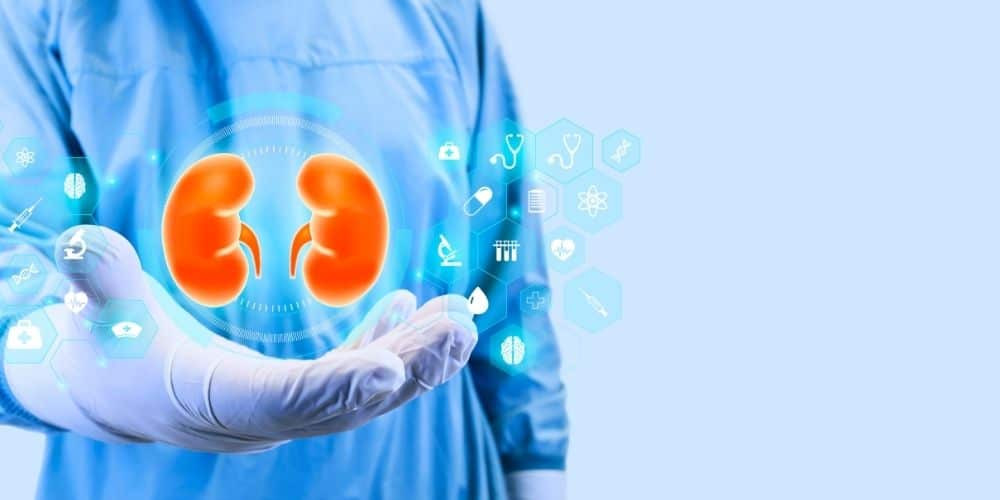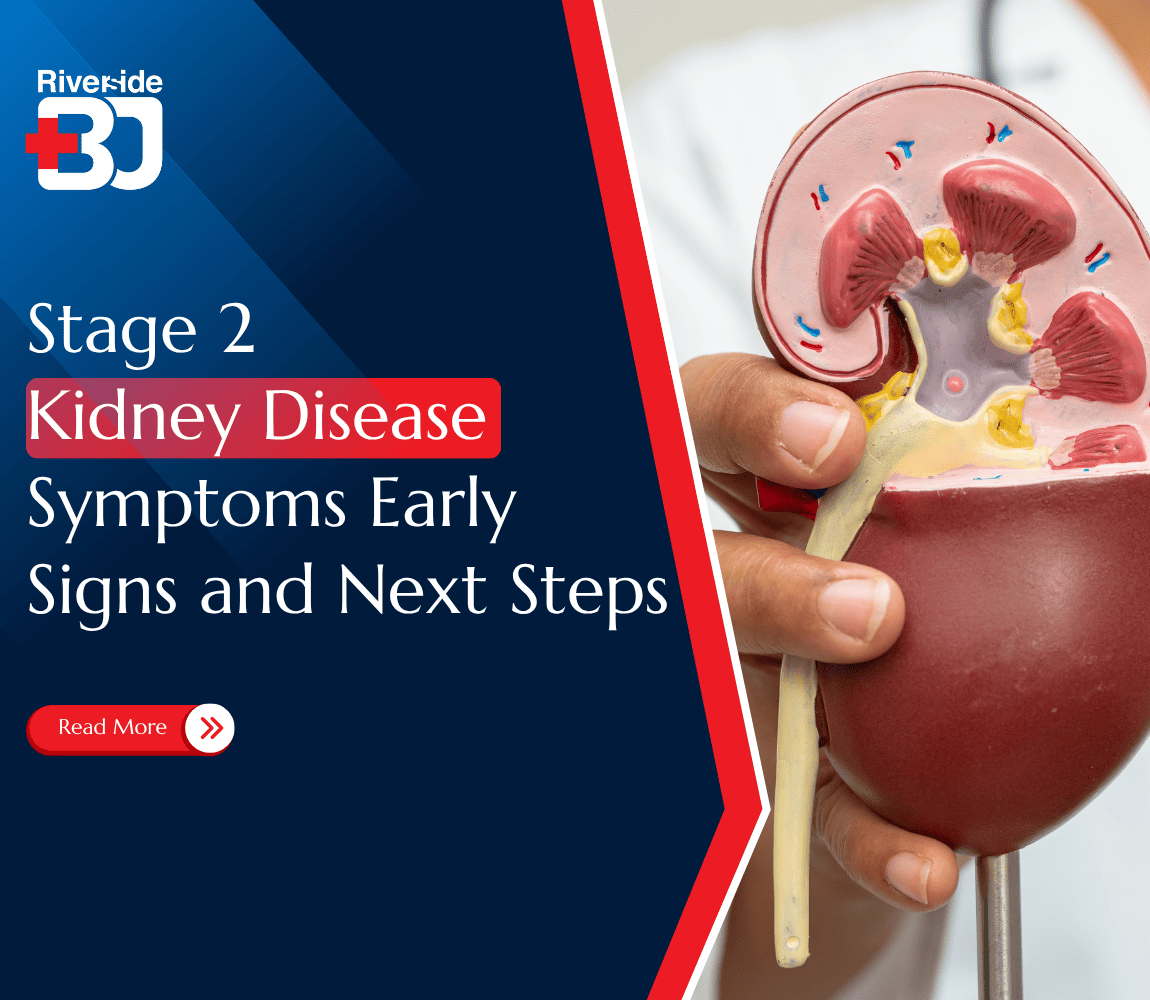Imagine your kidneys quietly losing their functions without you even realising it. That’s the danger of stage 2 kidney disease symptoms. They can be so subtle that many people mistake them for everyday tiredness or just, aging.
According to Kidney Care UK, around 3 million people in the UK live with chronic kidney disease (CKD), yet most are unaware until it advances.
At stage 2, the kidney function is still relatively preserved, but early damage is already underway. This means lifestyle changes and medical guidance can make a significant difference.
Left unchecked, this stage can progress to more severe CKD levels. Further, it increases the risk of complications such as high blood pressure, heart disease, and kidney failure.
In some cases, other conditions like the types of neurological disorders may also develop alongside CKD, affecting the overall health.
Catching the stage 2 kidney disease symptoms early gives you the power to slow its progression and safeguard your long-term health. In this blog, we shall break down what stage 2 kidney disease means, the symptoms to look out for, and the essential steps for its timely care.
What is Stage 2 Kidney Disease?

Stage 2 kidney disease symptoms may seem mild, but they indicate early kidney damage.
In Stage 2 CKD, the estimated glomerular filtration rate (eGFR) sits between 60 and 89 mL/min/1.73 m². Additionally, it is combined with signs like albuminuria or imaging abnormalities.
According to NHS England, about 22% of English adults aged 35 years and over have some stage of chronic kidney disease. This highlights the prevalence of early kidney damage, even when symptoms are minimal.
Even though kidney function appears quite robust, catching the early signs of kidney disease in stage 2 is vital. It’s a window where proactive care can truly change outcomes.
Let’s take a look at a broader classification of CKD to help contextualise where stage 2 fits.
CKD Classification Overview
Chronic kidney disease (CKD) is categorised by how well your kidneys filter waste. The primary measure is eGFR, while markers like protein in urine or imaging evidence confirm kidney damage.
As CKD stage 2 symptoms develop, your eGFR lies between 60 and 89 mL/min/1.73 m². At this stage, mild kidney damage is present, but kidney function remains relatively stable.
Classification then spans from G1 to G5. G1 and G2 require both eGFR levels and kidney damage to be diagnosed. Thus, understanding CKD stage classification empowers patients and clinicians alike to identify early signs of kidney disease sooner and act accordingly.
Stage 2 Kidney Disease Symptoms to Watch For
Stage 2 kidney disease symptoms can be subtle, yet they signal early kidney damage. At this stage, kidney function remains relatively stable, and daily life may feel unaffected. However, early awareness can make a real difference later.
As per the Kidney Research UK’s reports estimate that around 7.2 million adults in the UK live with chronic kidney disease (all stages). This means early-stage signs like CKD stage 2 symptoms often go unnoticed.
Therefore, it is vital to recognise signs that may point to stage 2 kidney disease symptoms or CKD stage 2 symptoms:
- To begin with, mild swelling often appears in the ankles or hands after standing or sitting for long periods. This indicates fluid retention.
- Next, people notice changes in urination, such as a rise in the frequency or a change in their volumes. This includes waking up at night, an early sign of kidney disease.
- They experience unexplained fatigue, even with adequate rest, as the kidneys fail to clear toxins effectively.
- Waste builds up in the blood and subtly impairs mental clarity. Hence, causing brain fog or poor concentration.
- Lastly, night-time muscle cramps often occur due to electrolyte imbalances linked to diminished kidney function and stage 2 kidney disease symptoms.
When these signs show up together, they may point to CKD stage 2 symptoms needing medical evaluation. Early detection and preventive strategies for kidney health can help preserve kidney functions and support long-term health with appropriate care.
Early Signs of Kidney Disease Before Stage 3
Before reaching stage 3, the early signs of kidney disease may still be reversible or manageable. This phase provides a critical opportunity to intervene and maintain the overall health. Understanding these subtler symptoms can guide timely steps toward controlling it.
For those with symptoms of stage 2 kidney disease, here are some of the key early signs to monitor before their progression:
- Morning puffiness around the eyes suggests fluid retention linked to reduced kidney filtration function.
- Unexpected high blood pressure, sometimes without an obvious cause, potentially a result of early kidney damage.
- Itchy or dry skin, which might emerge when the kidneys struggle to balance minerals and nutrients in the blood.
- A loss of appetite or unexplained weight gain. It is occasionally caused by a build-up of toxins from declining kidney performance.
- Metallic taste or persistent bad breath, possibly resulting from the accumulation of waste products in the bloodstream.
Although these early signs of kidney disease may mimic other conditions, identifying them before stage 3 can greatly improve outcomes. Acting promptly with medical and lifestyle adjustments preserves kidney functions and reduces risks in future.
When to See a Doctor

Persistent headaches, sudden dizziness, or weakness in your limbs should never be ignored. At times, these stage 2 kidney disease symptoms may indicate underlying neurological issues.
If you notice any changes in your vision, memory, or speech, prompt medical attention becomes essential. Furthermore, recurring seizures or unexplained numbness are clear warning signs that must be addressed immediately.
A neurologist can help diagnose and treat such conditions before they worsen. Moreover, early consultation allows for better management and recovery. In some cases, even minor symptoms could signal serious disorders requiring timely intervention.
If you experience persistent headaches, memory loss, or other neurological symptoms, don’t delay seeking help. Book a consultation with an experienced neurologist in Navi Mumbai at Riverside B&J Hospital and take the first step towards better brain health today.
How Stage 2 CKD is Diagnosed
Diagnosis of stage 2 kidney disease symptoms relies on both eGFR values and evidence of kidney damage. Typically, eGFR between 60 and 89 mL/min/1.73 m² must be confirmed on at least two occasions over 90 days.
Also, evidence such as protein in urine, haematuria, or imaging abnormalities supports the diagnosis. Interestingly, patients sometimes confuse specialist roles, such as in the case of neurosurgeon vs. neurologist, when multiple health concerns coexist alongside CKD.
Below are the main diagnostic steps used to pinpoint stage 2 chronic kidney disease symptoms or CKD stage 2 symptoms:
- First, doctors perform a blood test to measure the estimated GFR (eGFR) and detect mild filtration decline in kidney performance.
- Next, they conduct a urine albumin-to-creatinine ratio (uACR) or protein dipstick test to reveal any albuminuria or proteinuria.
- They repeat the testing after at least three months to confirm persistent eGFR reduction and rule out temporary fluctuations.
- Subsequently, imaging such as an ultrasound or CT scan is done. It may show early structural damage even when symptoms are scarce.
- Lastly, clinical evaluation is conducted. This includes a review of blood pressure, diabetes history, and medication that can affect kidney markers.
This combined testing approach ensures accurate diagnosis of stage 2 kidney disease symptoms. Early detection of CKD stage 2 symptoms helps guide effective care and reduces the risk of progression.
Tips to Manage Stage 2 Kidney Disease Early
Recognising stage 2 kidney disease symptoms early can make a significant difference in slowing the disease’s progression. Regular health check-ups help detect CKD stage 2 symptoms before they worsen, making early action possible.
Additionally, maintaining a balanced diet with reduced salt and processed foods helps to protect kidney function. Staying hydrated supports waste removal, but avoids taking excessive fluid intake without medical advice.
Furthermore, engage in light physical activity like walking to improve blood circulation and reduce pressure on your kidneys. Avoid over-the-counter painkillers without a prescription, as they can worsen stage 2 kidney disease symptoms.
Equally important, manage blood sugar and blood pressure, as uncontrolled levels can accelerate kidney damage. Understanding the early signs of kidney disease helps you take preventive measures promptly.
Lastly, consult a healthcare professional for personalised advice, helping you manage stage 2 kidney disease symptoms with confidence.
Conclusion
Understanding stage 2 kidney disease symptoms is essential for timely detection and effective management of your health.
CKD stage 2 symptoms can be mild or even go unnoticed, yet recognising the early signs of kidney disease, such as changes in urination, persistent fatigue, or mild swelling, can help slow disease progression.
By monitoring these stage 2 kidney disease symptoms closely and seeking medical advice early, you can significantly protect kidney function and improve quality of life.
For accurate diagnosis, advanced treatment, and personalised care, Riverside B&J Hospital’s, the best kidney hospital in navi mumbai is here to guide you every step of the way.
Contact us to book your consultation today and take the first step toward safeguarding your kidney health. Your wellness journey starts with expert care. Trust Riverside to be your partner for better health.
FAQs
- Can you feel symptoms in stage 2 kidney disease?
Stage 2 kidney disease symptoms are often mild or absent. However, subtle signs like fatigue, swelling, and changes in urination may occur over time.
- How serious is stage 2 kidney disease?
While stage 2 kidney disease symptoms indicate mild kidney damage, timely diagnosis and lifestyle changes can slow its progression and protect overall kidney function.
- What tests detect stage 2 kidney disease?
Doctors diagnose stage 2 kidney disease symptoms through blood tests (eGFR), urine tests, and imaging studies to assess kidney filtration rate and structural health.
- Can stage 2 CKD be reversed?
Stage 2 kidney disease symptoms can sometimes improve with early intervention, proper diet, and treatment. However, complete reversal is rare; progression can often be slowed.
- Does stage 2 kidney disease cause high blood pressure?
Yes, stage 2 kidney disease symptoms may include elevated blood pressure. That is because reduced kidney function can disrupt fluid balance and increase cardiovascular strain.

